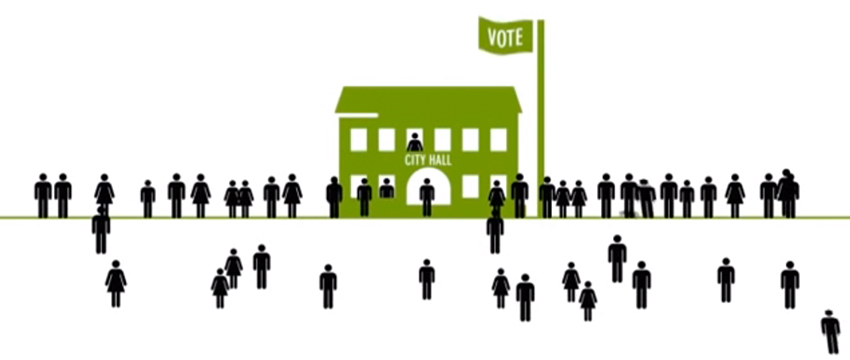
Seth Godin is a very highly regarded author in the business and marketing world. His well-known book, All Marketers Are Liars: The Underground Classic That Explains How Marketing Really Works — and Why Authenticity Is the Best Marketing of All often receives rave reviews. Even the title poses an interesting question in my mind: is it acceptable to ‘deceive’ an audience to prove a point, especially one that leads to a better, socially focused outcome?
Take, for example, this wonderful piece of communications created by the agency Leo Burnett Detroit, to help save the library in the town of Troy, Michigan. Faced against the wrath of the Tea Party (a notoriously savvy, well funded and vocal minority), the public library had to fight to save closure in the face of a 0.7% tax rise. The Tea Party went beyond the small picture of the library itself and focused on the larger issue of taxes, one of the biggest sticking points in American politics and their society in general. They did so because it would engage with their audience on a much deeper level than the library alone would achieve.
To respond, Leo Burnett ramped up the crazy to 11 (something spectacular in its own right, when compared to the overall rhetoric of the Tea Party). They changed the focus of the conversation to the even bigger picture and engaged the silent majority. An unfortunate aspect of political discourse, especially in America is the gaping difference between discussion and action. Looking at the number of voters in this campaign, if they were asked the question “should the library close?” a majority would have said no. But would they have cared enough to go through the action of voting? The figures suggest otherwise. So the key to the success of the campaign was to tap into this psyche and prompt action.
One could argue that the campaign is deceitful as it presented the market with a false position — and that that is a bad thing. Others (and I fall into this camp) would argue that the campaign is pure narrative, successful because it was able to flip the story on its head half way through. Look at any well-regarded movie or television show — they are lauded for being a rollercoaster of emotional storytelling, with the question of “what will happen next” at the forefront of our minds. But while these are passive experiences (as we are disconnected simply by being on the other side of the screen), Troy Library was an active experience, inviting their audience to discuss, revolt, shout and share. They wanted their audience to be even more vocal than the Tea Party. And to do this, they had to frame their story differently. They had to take their audience through a series of twists and turns, and that’s exactly what good storytelling should be.
Brands benefit from well-crafted storytelling. People love a good story and they want to become part of it. Very few are capable of this skill, and I would hope that most ply their craft with brands that are looking to better the world (admittedly even this is a subjective statement). But the morality and ethics of the marketing industry is a whole other topic, one that Seth Godin has also written about at length. And one, at least for now, the residents of Troy, Michigan can read about in their public, award winning library.
Original article here.
Written for Truly Deeply blog.